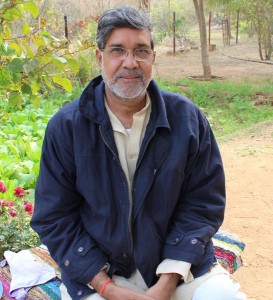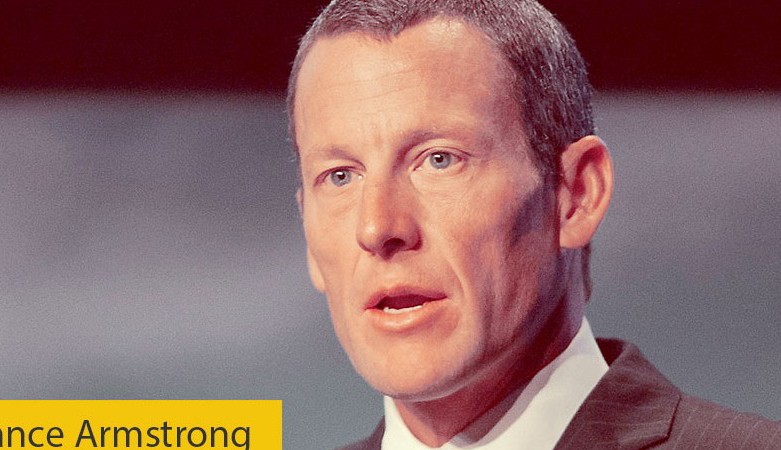Written by Luis Gallardo
I’ve known a lot of visionaries in my life, but none have understood how big dreams lead to unbridled achievement like Kailash Satyarthi, co-recipient of the 2014 Nobel Peace Prize.
A Nobel Prize seems like a big accomplishment, but the soft-spoken laureate didn’t let the award go to his head. The tireless advocate returned immediately to his mission to end child slavery. To date, the 61-year-old Indian’s Bachpan Bachao Andolan (Save the Childhood Movement) has rescued more than 80,000 children from bonded labor.
Never have I encountered someone who is so committed to his cause. Even after repeated attacks on his life and multiple murdered colleagues, Satyarthi refuses to back down from his stand against child slavery. It’s a level of dedication that reminds me of Olympic athletes training for decades to perfect their craft.
Satyarthi might not be a businessman by trade, but we business leaders have much to learn from his compassion, dedication and imagination.
From Peace Prize to professionals: Here is what Satyarthi has taught me about working hard and reaching higher:
1. DON’T STOP AT SUCCESS; KEEP DREAMING
Although Satyarthi has rescued more than 80,000 children from slavery since the 1980s, he still isn’t satisfied. He outlined an ambitious plan when speaking to the United States Institute of Peace this past June — Satyarthi now wants to mobilize 100 million people to become champions for the 168 million children worldwide who are enslaved in child labor.
How does this apply to business? Look at Google. Google became famous for its search engine — and its leaders probably could have stopped there if they simply sought fame and fortune. But the tech giant has debuted Google Earth, is testing Google Glass, and has created the first self-driving car. How’s that for dreaming bigger?
2. CREATE THE FUTURE YOU WANT
Satyarthi realized that ending child labor would take strategic planning — not just dangerous forays into illicit factories that employ child slaves. His 360-degree perspective led him to found GoodWeave, which aims to pull the rug out from underneath child labor by offering consumers certified child labor-free carpets while employing skilled adult artisans.
Don’t focus solely on your own business — create an entirely new future in which you want it to operate. Take Muhammad Yunus, another Nobel Peace Prize laureate turned social entrepreneur. Muhammad rethought banking by pioneering microfinance with the social startup Grameen Bank, which offers credit to entrepreneurs in developing countries who are too poor for traditional bank loans.
3. MAKE IT PERSONAL
When I listen to Satyarthi speak to leaders, children, or just about anyone interested in his cause, I always notice something — he might be soft-spoken, but he could not be more personally invested in his mission. I’ve heard him tell children, “You’re not the leaders of the future; you’re the leaders of the present.”
Satyarthi’s teachings have showed me that you don’t need to be a CEO to lead in business. It’s easy to feel powerless at a large company of thousands of people or to make excuses for why you can’t do something. But here’s a secret: You have more power than you think you do. It’s about making change where you are now, no matter what role you play at your company.
4. DO THE GRUNT WORK
Satyarthi doesn’t ask anyone to do anything he wouldn’t do himself. He has led raids himself, and he’s had his shoulders and back broken while trying to rescue children. As an organizer and participant in the Global March Against Child Labor, millions of marchers have followed in Satyarthi’s literal footsteps. The 80,000-kilometer march, which began in 1998, has spanned 103 countries and has drawn praise from leaders around the globe.
Satyarthi never would have attained the following he did if he weren’t willing to get his hands dirty. In business, this is the best way to breed trust with your team. If you show people you’re willing to do any task — no matter how menial or basic — you’ll attract a following of believers.
REFLECTING, TEACHING AND LEARNING
Even though Satyarthi’s heart lies with humanitarian work, he taught me one more business secret: Every successful journey must include rest and reflection. Here’s how you can look back on your achievements and enable them to boost you even higher.
When your team has worked hard to reach a goal, it’s time to celebrate. It doesn’t have to be a boisterous, loud celebration — Satyarthi was happy to win the Nobel Prize, but there was no shouting or crying when he learned about it in his unremarkable South Delhi office. No matter how your team celebrates, everyone needs the headspace to reflect, rethink, and look toward bigger goals.
Another good way to gauge your success involves teaching. Before Satyarthi decided to devote his life to ending child labor, he taught eager-eyed students as a professor of engineering in Bhopal. Kailash knows sharing what you’ve learned doesn’t just help others; it allows you to understand your own experiences and goals much more thoroughly.
The flip side of this involves learning. When I travel with Satyarthi, I’m always struck by his boundless curiosity. It’s this spirit that enables him to never be satisfied with his current knowledge or his current success.
In the end, Satyarthi hasn’t just taught me to dream — he’s taught me to always factor others into my dreams. From there, it’s a matter of having the courage and determination to make those dreams happen — Satyarthi had his limbs broken and didn’t quit on his dreams. Take a cue from Satyarthi to shrug off adversity, reach higher, and never forget about the welfare of others.




